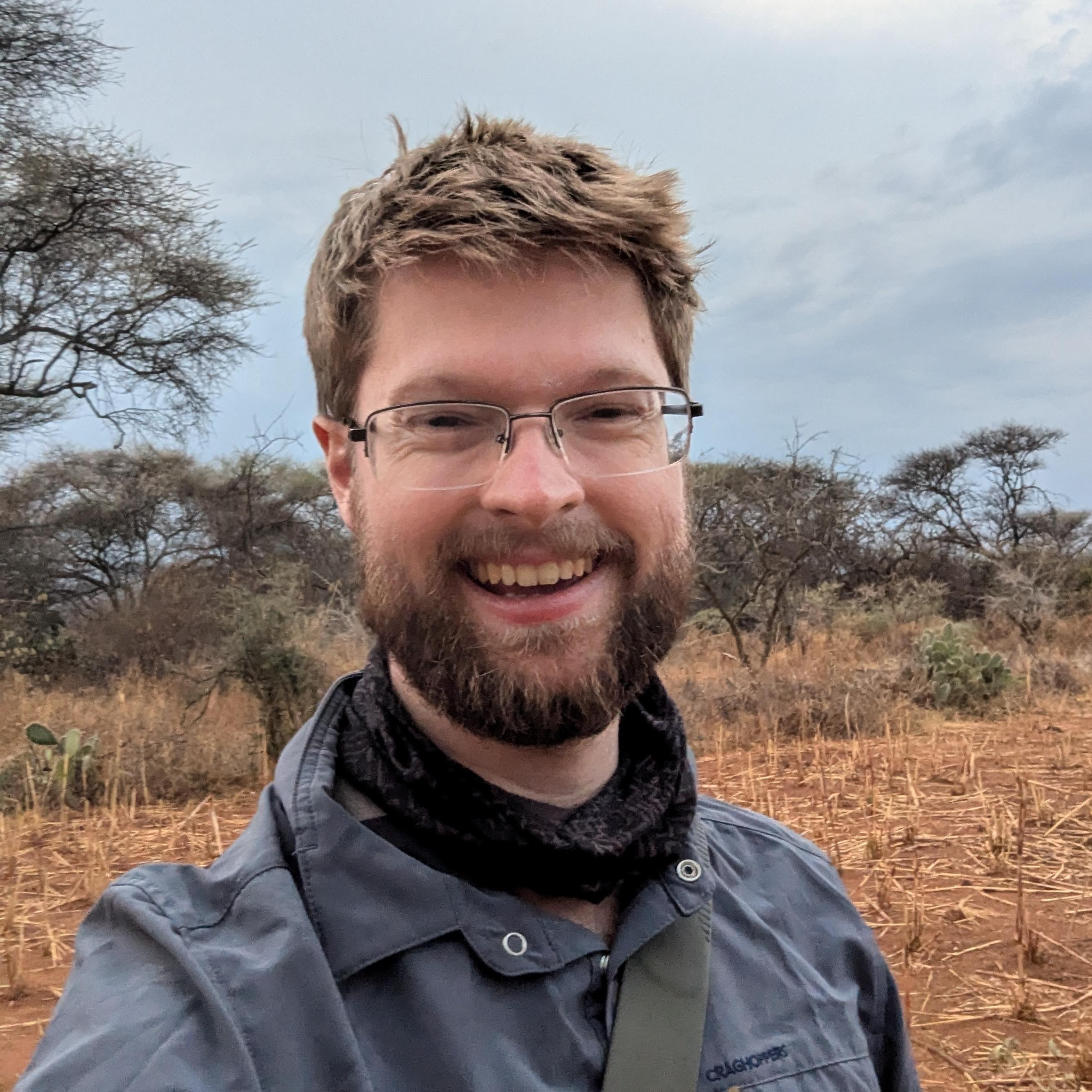Staff profile
Dr Duncan Stibbard-Hawkes
Assistant Professor (Research)

| Affiliation | Telephone |
|---|---|
| Assistant Professor (Research) in the Department of Anthropology |
Biography
Research Profile
I am an evolutionary anthropologist and human behavioural ecologist, interested in hunter-gatherer egalitarianism, subsistance transition, and the use and abuse of signalling theory. I conduct fieldwork with the Hadza, a population in northern Tanzania who have traditionally subsisted through hunting and gathering.
I am a Leverhulme funded ECR research fellow and assistant professor in the department, investigating subsistance transition and the soceo-ecologocal correlates of forager egalitarianism. Between 2020-2022 I worked as a postdoctoral research fellow on the 'Culture of Schooling' project in collaberation with Dr Coren Apicella (UPenn) investigating the impacts of Hadza engagemement with formal education. Between 2017-2019 I worked at Durham as a teaching fellow.
More information about my research interests and my work can be found in this interview.
Short Biography
- 2020-Present: Assistant Professorship (Research), Durham University
- 2019-2020: Honourary Fellowship, Durham University
- 2017-2019: Teaching Fellowship, Durham University
- 2012-2017: PhD in Evolutionary Anthropology, University of Cambridge, supervised by Frank Marlowe and Robert Attenborough
- 2008-2011: BA/MA in Archaeology and Anthropology, University of Cambridge
Research interests
- Forager Egalitarianism
- Signalling Theory
- Food Sharing
- Hunter Gatherer Subsistence Ecology
- Hunting Skill
Esteem Indicators
- 2025: Editor-in-Chief, Journal of Hunter-Gatherer Reserach:
- 2023: Review Board, Evolution and Human Behaviour:
- 2022: Editorial Board, Human Nature:
Publications
Chapter in book
- Stagnaro, M. N., Stibbard-Hawkes, D. N. E., & Apicella, C. L. (2023). Do religious and market-based institutions promote cooperation in Hadza hunter-gatherers?. In M. Lang, B. Grant Purzycki, J. Henrich, & A. Norenzayan (Eds.), The Evolution of Religion and Morality (171-189). Routledge. https://doi.org/10.4324/9781032624099-11
- Stibbard-Hawkes, D. N. (2020). Egalitarianism and democratized access to lethal weaponry: a neglected approach. In L. Moreau (Ed.), Social inequality before farming? Multidisciplinary approaches to the study of social organization in prehistoric and ethnograpic hunter-gatherer-fisher societies (83-102). McDonald Institute for Archaeological Research. https://doi.org/10.17863/cam.60646
Journal Article
- Stibbard-Hawkes, D. N. E. (online). Did we all go together when we went? Considering the adaptive importance of risky joint action. Religion, Brain & Behavior, https://doi.org/10.1080/2153599X.2023.2197983
- Stibbard-Hawkes, D. N. E. (online). Reconsidering the link between past material culture and cognition in light of contemporary hunter-gatherer material use. Behavioral and Brain Sciences, 1-53. https://doi.org/10.1017/s0140525x24000062
- Stibbard-Hawkes, D. N. E. (2025). Hominin cognition: The null hypothesis. Behavioral and Brain Sciences, 48, Article e23. https://doi.org/10.1017/S0140525X24001055
- Venkataraman, V. V., Hoffman, J., Farquharson, K., Davis, H. E., Hagen, E. H., Hames, R. B., Hewlett, B. S., Glowacki, L., Jang, H., Kelly, R., Kramer, K., Lew-Levy, S., Starkweather, K., Syme, K., & Stibbard-Hawkes, D. N. (2024). Female foragers sometimes hunt, yet gendered divisions of labor are real: a comment on Anderson et al. (2023) The Myth of Man the Hunter. Evolution and Human Behavior, 45(4), 106586. https://doi.org/10.1016/j.evolhumbehav.2024.04.014
- Stibbard-Hawkes, D. N. E., Abarbanell, L., Mabulla, I. A., Endeko, E. S., Legare, C. H., & Apicella, C. L. (2024). Foreign-language effects in cross-cultural behavioral research: Evidence from the Tanzanian Hadza. PNAS Nexus, 3(6), Article pgae218. https://doi.org/10.1093/pnasnexus/pgae218
- Stibbard-Hawkes, D. N., Amir, D., & Apicella, C. L. (2023). A cost for signaling: do Hadza hunter-gatherers forgo calories to show-off in an experimental context?. Evolution and Human Behavior, 44(5), https://doi.org/10.1016/j.evolhumbehav.2022.10.004
- Stibbard‐Hawkes, D. N., & Apicella, C. L. (2022). Myopia rates among Hadza hunter‐gatherers are low but not exceptional. American Journal of Biological Anthropology, 179(4), 655-667. https://doi.org/10.1002/ajpa.24611
- Stibbard-Hawkes, D. N., Smith, K., & Apicella, C. L. (2022). Why hunt? Why gather? Why share? Hadza assessments of foraging and food-sharing motive. Evolution and Human Behavior, 43(3), 257-272. https://doi.org/10.1016/j.evolhumbehav.2022.03.001
- Stagnaro, M. N., Stibbard-Hawkes, D. N., & Apicella, C. L. (2022). Do religious and market-based institutions promote cooperation in Hadza hunter-gatherers?. Religion, Brain & Behavior, 12(1-2), 171-189. https://doi.org/10.1080/2153599x.2021.2006293
- Stibbard‐Hawkes, D. N., & Attenborough, R. D. (2021). Some omissions, few confusions. A reply to Pinheiro 2021. American journal of physical anthropology, 174(3), 392-395. https://doi.org/10.1002/ajpa.24223
- Gray, P. B., Crittenden, A. N., Apicella, C. L., Berbesque, C., Stibbard-Hawkes, D. N. E., & Wood, B. (2020). In Memoriam: Frank W. Marlowe (April 17, 1954–September 25, 2019). Human Nature, 31(1), 1-8. https://doi.org/10.1007/s12110-019-09357-1
- Stibbard‐Hawkes, D. N., Attenborough, R. D., Mabulla, I. A., & Marlowe, F. W. (2020). To the hunter go the spoils? No evidence of nutritional benefit to being or marrying a well‐reputed Hadza hunter. American journal of physical anthropology, 173(1), https://doi.org/10.1002/ajpa.24027
- Stibbard-Hawkes, D. N. (2020). No Association between 2D:4D Ratio and Hunting Success among Hadza Hunters. Human Nature, 31(1), https://doi.org/10.1007/s12110-019-09359-z
- Stibbard-Hawkes, D. N. (2019). Costly signaling and the handicap principle in hunter-gatherer research: A critical review. Evolutionary Anthropology, 28(3), 144-157. https://doi.org/10.1002/evan.21767
- Stibbard-Hawkes, D. N. E., Attenborough, R. D., & Marlowe, F. W. (2018). A Noisy Signal: To what extent are Hadza hunting reputations predictive of actual hunting skills?. Evolution and Human Behavior, 39(6), 639-651. https://doi.org/10.1016/j.evolhumbehav.2018.06.005

